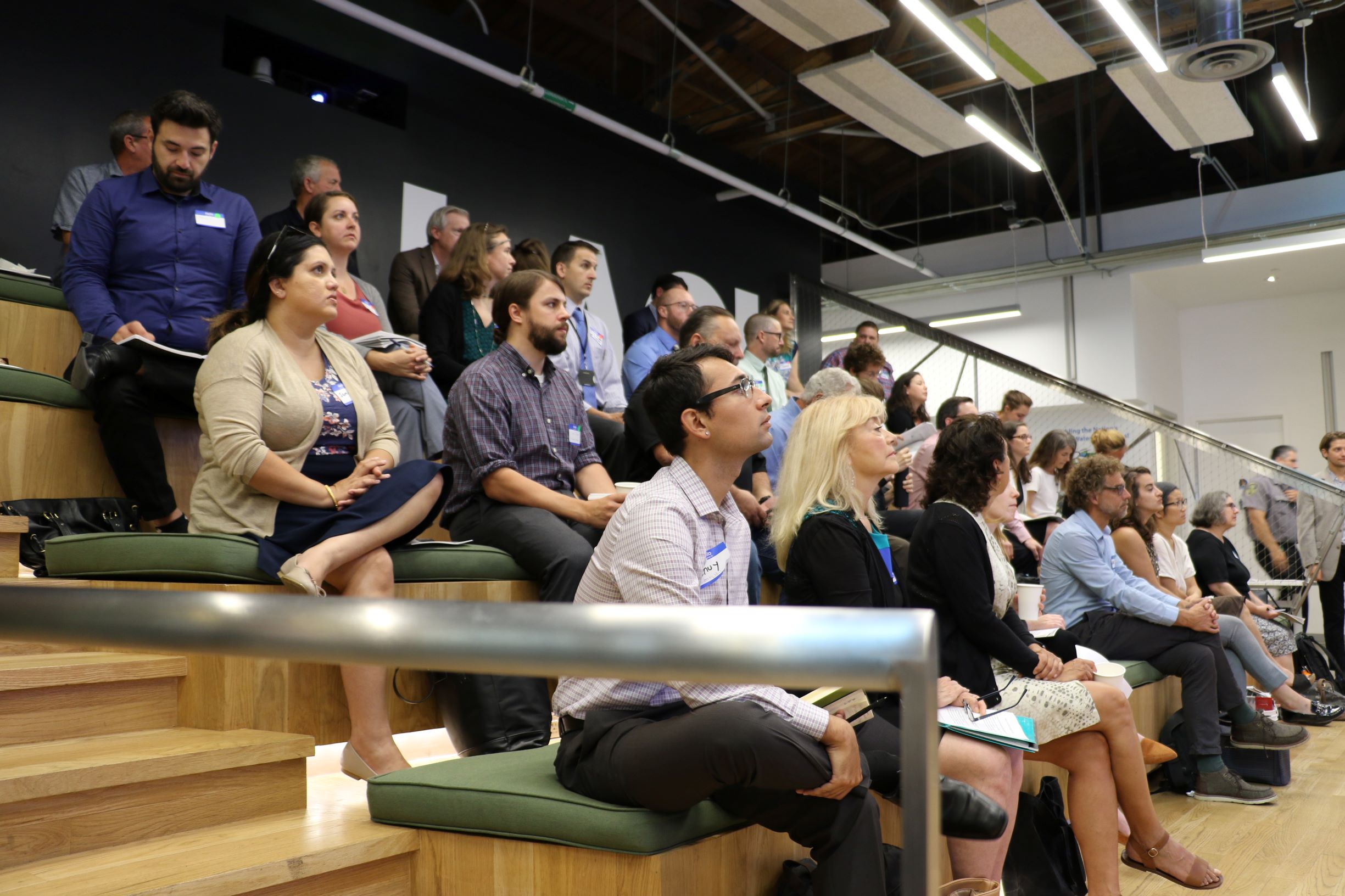UCLA convened decision-makers from public and private sector organizations across the County to provide input on the topic of Water.

The “Water and People” workshop, held on July 23, 2018 at Los Angeles Cleantech Incubator, attracted over 60 attendees from public agencies across the region, private sector entities, utility companies, and members of the Our County Strategic Engagement team.
At the workshop, the L.A. County Chief Sustainability Office provided an overview of the Our County plan development and UCLA presented key background, data, and findings regarding water use, procurement, distribution, regulation, and policymaking around L.A. County. An accompanying briefing document outlined this information.
Workshop participants then met in breakout groups to provide feedback on general water goals that were included in the briefing and framed the discussion. The second breakout session featured a series of prompts evoking cross-cutting sustainability themes. Participants voted on the three prompts they felt should be most prioritized, and developed a list of water-related sustainability strategies based on the prompt. The final breakout session had one attendee from the public sector pair off with an attendee from the private sector. Each pair were handed one of the cross-cutting prompts and developed a concept for a water-focused public-private partnership opportunity relating to the prompt.
Key Takeaways
- The need to improve residents’ water literacy through public education was widely discussed throughout the workshop. Many discussed wanting to see more educating of residents and businesses on water literacy, with focused engagement on local communities that face unique disadvantages from potential water policy changes.
- Public and private sector stakeholders agreed on the need for L.A. County to consider regional water interdependency in policymaking. Participants want to see a simpler water governance structure with better coordination and collaboration with regional water providers. They asserted the importance of communicating and coordinating with other regional governments and state government to collaborate on the many layers of water management in order to create effective water policy.
- Improving infrastructure resilience was mentioned in every breakout group. Stakeholders shared desires for improving water infrastructure resilience in preparation for increasing intensity of weather and geological events. Experts shared desires for LA County to require both residential and commercial buildings to capture and use storm water, and to take action to require and incentivize property owners to raise building standards with on-site water capture, solar roofing, and grey water distribution.
- Participants highlighted that integrating natural and urban needs and prioritizing open space are key to achieving water sustainability goals. They shared how open space can be used to start with consensus between environmental groups and infrastructure groups, and can be a nexus of water education opportunities. Several spoke of how “open space” should include everything from agricultural lands to river rehabilitation and the smaller spaces that water permeates, noting many features of the built environment that should better integrate water reclamation strategies.
- For all aspects of water sustainability, stakeholders highlighted the need for L.A. County to identify financing and funding mechanisms, expressing a need to include this in the goals. Many people shared the need for determining who pays for improvements and ensuring equity is taken into consideration so costs are not passed down to those who are most disadvantaged and negatively impacted.
Comments on the key recommendations can be directed to sustainability@lacounty.gov.
Read more in the Water Public Private Workshop Summary
Download the Water Public Private Workshop Presentation
Download the Our County Water Briefing
